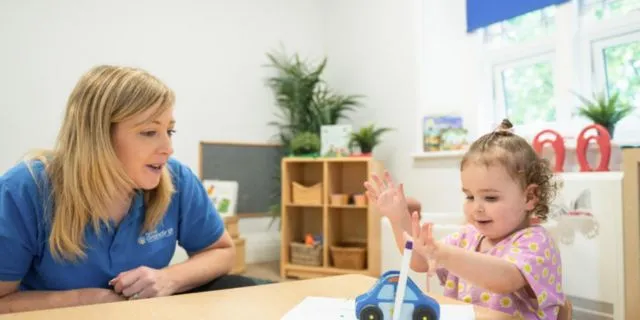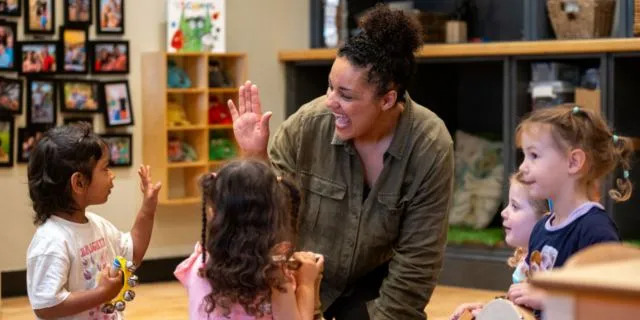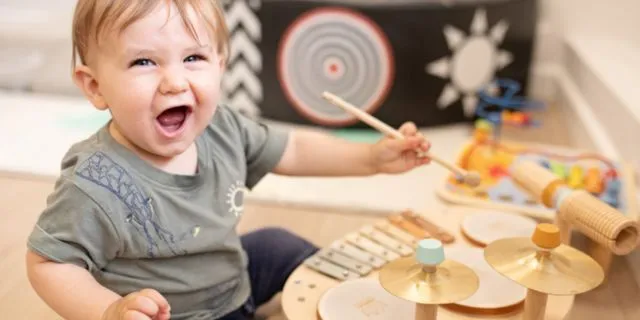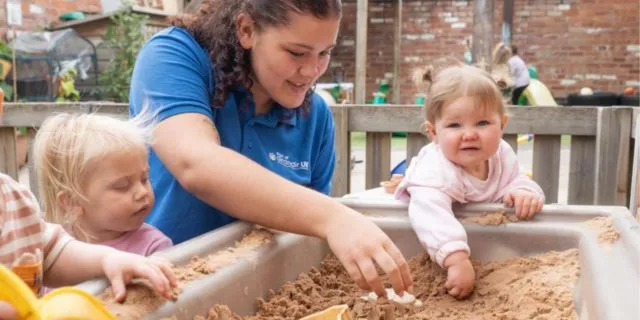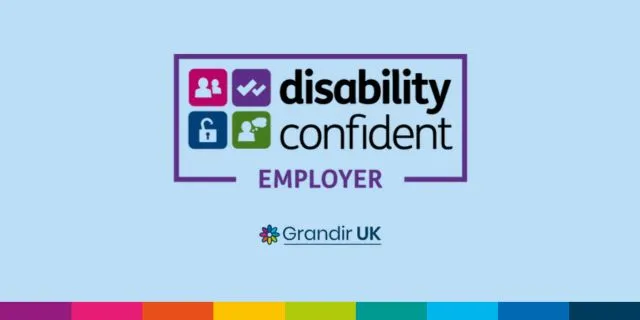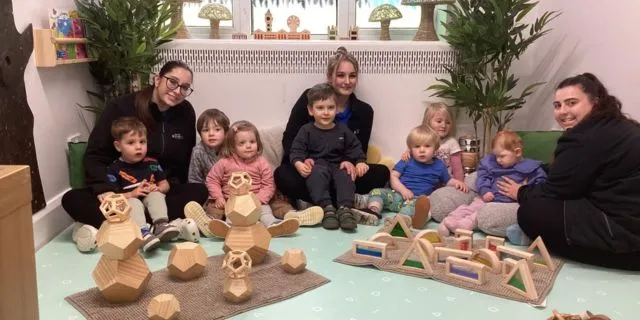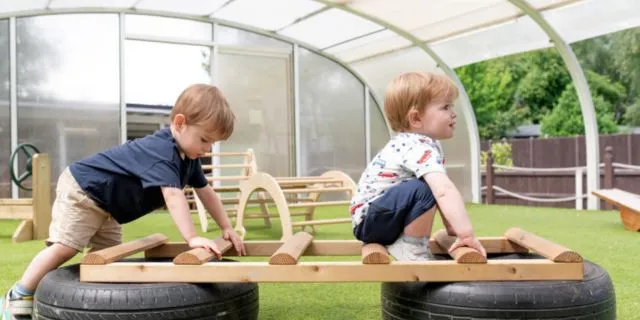Blog
Growing calm – Helping your child with emotions and self-regulation
Blog

by Sara Coffey
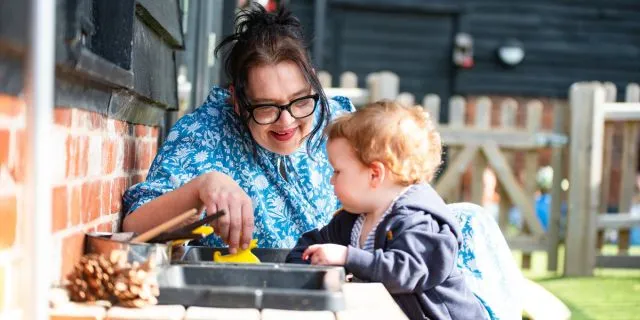
Young children experience a wide range of big feelings, and they don’t yet have the tools to self-regulate, which means they rely on us to help them manage their emotions and make sense of the world around them. Helping children develop their emotional regulation skills is one of the most important roles parents, carers and practitioners play in children’s Early Years development.
This blog supports Episode 1 of our Let’s grow: Parents & Carers Series ‘Growing calm’, offering guidance on how you can help your child develop strong self-regulation skills and build healthy emotional foundations that last a lifetime.
Why emotional regulation matters in early childhood
During the first five years of life, a child’s brain undergoes rapid growth and development. Research shows that by age three, around 80% of the brain’s physical structure is developed, and by age five, that figure rises up to around 90%. These Early Years are critical for child development, especially in areas like emotional development, cognitive development, and the ability to regulate emotions.
Children experience a wide spectrum of emotions, from joy and excitement. to sadness, frustration and anger. However, unlike adults, they haven’t yet developed the self-regulation skills needed to process or express certain emotions in a healthy way. This is why it’s so important for parents, carers and Early Years practitioners to teach self-regulation skills, providing a supportive framework to guide them through these crucial early stages.
What is self-regulation?
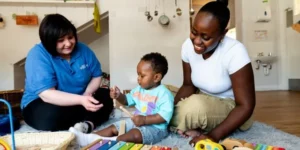
Self-regulation refers to a child’s ability to manage their emotional reactions, behaviours and impulses. Having strong self-regulation skills helps children cope with negative emotions, develop self-control and respond to challenges without becoming overwhelmed or upset.
In the early years, however, self-regulatory skills are still developing. This is why co-regulation is so important; adults play a vital role in helping children through emotionally charged moments by offering comfort, connection, and support.
Strategies to help children self-regulate
When a child is having a tough time, they may feel frustrated, angry or simply overwhelmed. It’s crucial during these moments for adults around them to remain calm. Our own reactions to behaviour model how to manage distressing or difficult situations.
Here are some key strategies you can use:

1. Co-regulation through connection
Get down to your child’s level. Offer a gentle touch, a cuddle, or simply your calm presence. Use simple language to identify their emotions: “I can see you’re feeling sad.” This kind of attuned connection helps children feel seen and understood.
2. Normalise big feelings
Let your child know it’s okay to feel strong emotions and that everyone feels this way sometimes. Say things like “I feel sad when I lose something, too,” so they understand that emotional self-regulation is a skill we all continue to develop. This is especially important during the toddler years, when emotional regulation is still emerging.
3. Work together to find solutions
Problem-solving with your child builds your child’s confidence in managing their own emotional reactions. Ask questions like “What can we do to help you feel better?” to begin teaching them that they have some control over how they respond to their feelings.
4. Respect individual needs
Some children need space. Others need a hug. Every child is different, and part of building strong self-regulation skills is learning what works best for your child’s personality, age, and experiences.
The role of parents and practitioners
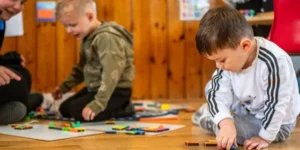
Parents, educators, and carers all play a vital role in helping children develop the ability to self-regulate. Through responsive interactions, routine, and emotional safety, we teach children how to respond to difficult emotions, understand the emotional impact of their actions, and begin forming lifelong tools for well-being.
It’s also important to remember that emotional dysregulation in toddlers is completely normal, too. Most children will have meltdowns or challenging behaviour at some point; it’s part of learning and growing. But when we offer calm, consistent support, we help develop emotional regulation skills that strengthen over time.
Factors that influence self-regulation
There are many elements that can affect a child’s ability to self-regulate, including:
Recognising these influences helps adults provide more personalised and effective support.
Final take away
Helping your child self-regulate is one of the most valuable gifts you can give them. By modelling calm, offering comfort, and using simple yet powerful strategies, we can support children in building the emotional resilience they need not only for today, but for all the years to come.
If you’d like more support, speak to your nursery team who will be happy to help.
You can find the resources mentioned here:
Tags
Share this article
Related blog/news
Swipe to see our latest articles.
